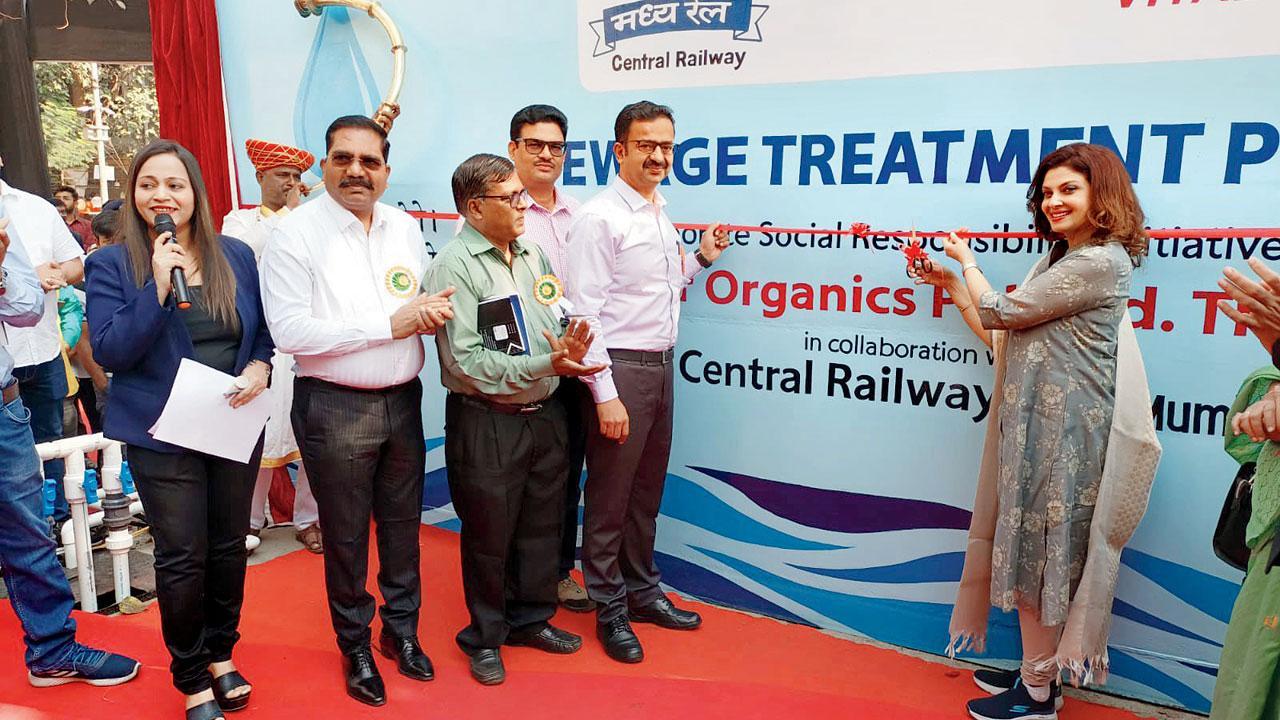Mega treatment plant on premises to generate 40 kilolitres reusable water in a day, 100 kg compost per month

The sewage treatment plant at Thane railway station uses moving bed biofilm reactor technology
Thane railway station premises will generate 40 kilolitres of reusable water per day and 100 kg of compost each month thanks to a mega treatment plant that was inaugurated there on Wednesday morning. The station premises includes a railway colony, offices and hospital, and the facility will treat 45 kilolitres of sewage every day.
Amrendra Singh, additional divisional railway manager, Mumbai, said, “The plant will make Thane central railway complex a zero-waste, zero-effluent facility. This complex will no longer burden the over-stressed sewage infrastructure of the Thane municipality. The plant will reduce municipal water consumption by up to 60 per cent. Also, it will produce approximately 100 kg of compost every month for use in our gardens and residential colonies.”
The plant has been built by Meyer Organics—which is part of the London-based nutraceuticals company Vitabiotics—under its CSR plan. It uses highly effective moving bed biofilm reactor (MBBR) technology to treat sewage. The MBBR system consists of an aeration tank, similar to an activated sludge tank, with special plastic carriers that provide a surface where biofilm can grow. The technology relies on thousands of layers of bio-film containing millions of bacteria to break down sewage into clean usable water and rich compost.
Also Read: Mumbai: Chaos as doors of AC local on Western Railway don't open
Rajesh Tawde, director, Meyer Organics, said, “The plant will save the city 40 to 45 kilolitres of water every day and generate 100 kg of natural compost for the city’s use every month. It is a model for reducing the burden of sewage treatment and water consumption on cities. The two benefits are game changers for any city’s ecosystem, resources and the health of its residents.”
The Thane railway station will use the recycled water for gardening, platform cleaning, washing trains, sanitising toilets, and activities that don’t require potable water. The compost produced by the plant will be used in railway gardens and nurseries and will be packed and made available to railway staff for use in their gardens, Singh said.
45
Amount of sewage to be treated daily in kilolitres
 Subscribe today by clicking the link and stay updated with the latest news!" Click here!
Subscribe today by clicking the link and stay updated with the latest news!" Click here!








